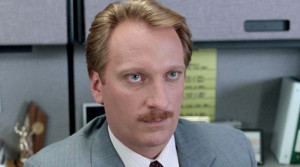 Years ago, my best friend got called out of class to the principal’s office. My friend is smart and sociable. A coral necklace and bushy blond hair dangled around his tanned shoulders as he swaggered down the hall in untied boat shoes.
Years ago, my best friend got called out of class to the principal’s office. My friend is smart and sociable. A coral necklace and bushy blond hair dangled around his tanned shoulders as he swaggered down the hall in untied boat shoes.
“I wonder what the principal wants?” he thought. “Maybe he needs my advice on something? Oh, I know. I bet he nominated me for an award!“
With a huge grin, he flopped down across the desk from the principal. “Hey Mr. Warwick! How’s it going?”
Sensing someone else in the room, he twisted around to see his mom frowning from the back of the office. He didn’t get an award. But he’s now a surgeon and medical professor.
Doctors care for patients. They assume medical politics is about improving patient care. Doctors form large organizations to represent the views of dozens of different specialties. They raise issues and try to work out solutions using input from different doctors’ groups. MDs believe clinical facts drive solutions to medical issues.
Like my friend sauntering to the principal’s office, most doctors don’t understand why politicians want to talk. Of course, politicians want to improve patient care. But they want something else much more.
Politicians run for office to shape society. They seek to serve voters by influencing policy towards a particular political vision.
Doctors’ Political Blind Spot
Doctors come unprepared to compete. They pay attention to the wrong things. It’s as if they want the most aerodynamic helmets in a diving competition, or the best golf shoes for downhill skiing. Ontario Medical Association members obsess about whether the right balance of specialties gets elected instead of obsessing over what their representatives think (substantive representation).
Doctors compete for the wrong prize. They assume that politicians want to find the best way to fix patient issues. They don’t realize (or intentionally ignore) that politicians want to find the best ways to advance political agendas by creating solutions to patient issues.
Physicians have a huge political blind spot.
Doctors Want Answers
Many docs ask their provincial associations to respond to articles in journals and newspapers. Most associations only respond to correct factual errors, if a dignitary makes a remark that begs retort, or if they have a policy related to the content in question.
But there’s a bigger reason medical associations cannot respond to media. Most responses require a political opinion. Medical associations aren’t structured to develop political opinions, let alone have one prepared.
So if politicians say we need a powerful, central organizing body to coordinate national healthcare, doctors’ associations can only comment about patient care and health human resources. They cannot say anything about the politics involved in large, centralized bureaucracies running services per se. That requires a political opinion. Medical associations aren’t allowed to have one.
Get Political
A past president of the OMA once told me, “Doctors need to understand that the OMA is a political body. It’s really more like a lobbyist organization.”
I didn’t understand him but finally see what he meant. By the time elected doctors in medical leadership see that the ‘clinical’ issues are not medical but political agendas in disguise, it’s too late. They’ve termed out of office and must move on, and there’s a whole new crop of elected clinicians to convince.
Doctors must get explicit on what they believe about basic political principles. People often talk about being ‘political’ but really mean something like image control or buying voter support. Political opinions dig deeper than media spin and public sympathy. Doctors need to wrestle with fundamental political issues that inform questions like:
- Should we reward hard work or should all workers be treated the same?
- Do bureaucrats know how to organize clinical practices better than doctors?
- Can we drive excellence with more and more regulation or is there a better way?
Doctors must address the political blind spot built into the structure of their associations. If they do not, they will remain only supporters of political change instead of drivers of it. It takes enormous energy to resist the growth of medical bureaucracy even if doctors can see it. And doctors are feeling very tired indeed.

Hi Shawn
As always a very thought provoking piece.
I’d love to see a follow-up with proposed solutions.
Thanks for taking the time to read and comment, Scott!
I find treatment, for some of the most challenging diagnoses, is often much easier than getting people to agree on the diagnosis (e.g., addictions). No one will listen to solutions unless we can create appetite based on an admission of need.
Most doctors focus on pressing issues and seek to ‘win’ each little battle. This makes it easy for government. They let docs ‘win’ with better contracts but control the overall shape and direction of healthcare.
I think we need to start with principles that doctors support. If we aren’t sure, ask the membership. We could start with a series of simple questions like those listed at the end of the post. Responses inform a philosophy of medical politics. Doctors, like all people, hold one set of ideas but talk as though they believed something other than they follow every day. We could start by making that dichotomy explicit.
From there, we need to build a political platform that has direction and vision. It will be complex, nuanced and frustratingly challenging just like medicine. Simplistic platforms would insult the complexity of the patients we serve every day.
I’ll take up your challenge in another post. I fear that most people won’t be interested in reading it….
Thanks again for taking time to read and share!
Best regards,
Shawn